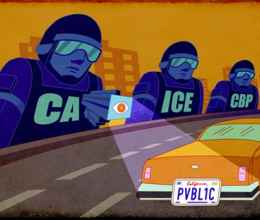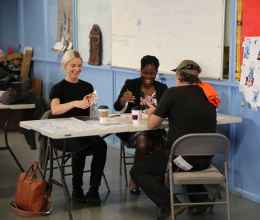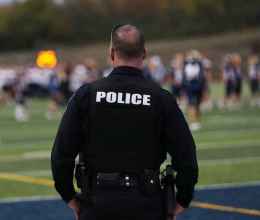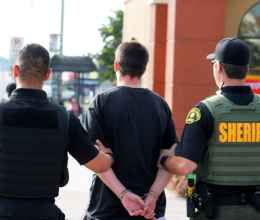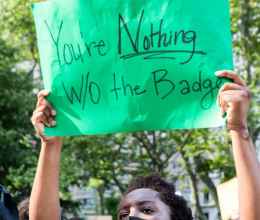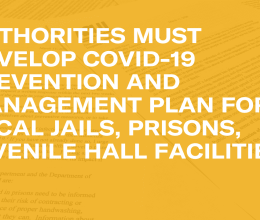FOR IMMEDIATE RELEASE
October 8, 2019
Media Contact:
Daisy Vieyra
dvieyra@acluca.org
916-824-3266
SACRAMENTO–Today, California Governor Gavin Newsom signed landmark legislation making California the largest state in the country to block law enforcement agencies from using facial recognition and other biometric tracking technology in connection with officer body cameras.
Assemblymember Phil Ting (D-San Francisco) introduced AB 1215: The Body Camera Accountability Act earlier this year in light of heightened concerns that law enforcement agencies may add face-tracking technology onto body cameras, jeopardizing Californians’ safety and civil liberties. AB 1215 received bipartisan support in both chambers of the California Legislature. The new law goes into effect January 1, 2020 with a three-year sunset provision.
“Without my bill, facial recognition technology essentially turns body cameras into a 24-hour surveillance tool, giving law enforcement the ability to track our every movement. Let’s not become a police state and keep body cameras as they were originally intended – to provide police accountability and transparency,” said Assemblymember Ting.
In mid-August, the ACLU released test results showing that facial recognition software incorrectly “matched” 26 California state lawmakers with photos from a database of arrest photos, echoing multiple studies that have demonstrated prominent facial recognition systems to be less accurate for people of color, women, and children. Accuracy issues aside, facial recognition enables governments to track entire populations, with governments in the United States, China, and the United Kingdom currently rushing to deploy it against people.
“With this law, California has acted boldly to protect civil rights and civil liberties from the threats posed by an unprecedented surveillance technology,” said Matt Cagle, Technology and Civil Liberties Attorney at the ACLU of Northern California. “Rather than facilitating the expansion of a discriminatory surveillance state, California must invest its precious resources to foster free, healthy communities where everyone can feel safe – regardless of what they look like, where they’re from, how they worship, or where they live. We look forward to building on this victory and urge other legislatures to follow suit.”
Momentum for strict limits on facial recognition is growing nationwide. In May, a legislative campaign led by the ACLU of Northern California resulted in San Francisco becoming the first city to pass a municipal ban on government facial recognition use. Since then, Oakland, Berkeley, and Somerville and Cambridge, Massachusetts have introduced or adopted their own bans. Multiple members of Congress have expressed interest in bipartisan federal legislation to strictly limit the government’s deployment of this technology. Legislators in Massachusetts, Michigan, New York, and Washington have all introduced legislation putting some form of a halt on the government’s use of these systems. Oregon and New Hampshire already prohibit the use of facial recognition with body cameras.
AB 1215 also codifies an emerging industry consensus. Axon, a prominent body camera manufacturer, announced in June that it would not add facial recognition to its body camera systems. Microsoft also announced its refusal to allow a California law enforcement agency to use its facial recognition software with officer body cameras, citing human rights concerns.
The Body Camera Accountability Act (AB 1215) was supported by a wide coalition of organizations that safeguard the rights, safety, and freedom of all Californians in all our diversity: ACLU of California, AIDS Legal Referral Panel, API Chaya, Anti Police-Terror Coalition, Asian Law Alliance, Asian Americans Advancing Justice – California, Citizens Rise!, Color of Change, Council on American-Islamic Relations – California, CRASH Space, Data for Black Lives, Electronic Frontier Foundation, Fight for the Future, Harvey Milk LGBTQ Democratic Club, Indivisible CA, Justice Teams Network, Media Alliance, Media Justice, National Association of Criminal Defense Lawyers, National Center for Lesbian Rights, Oakland Privacy, RAICES, README at UCLA, Root Access, San Jose/Silicon Valley NAACP, Secure Justice, Transgender Law Center, Library Freedom Project, Tor Project, and X-Lab.
###


